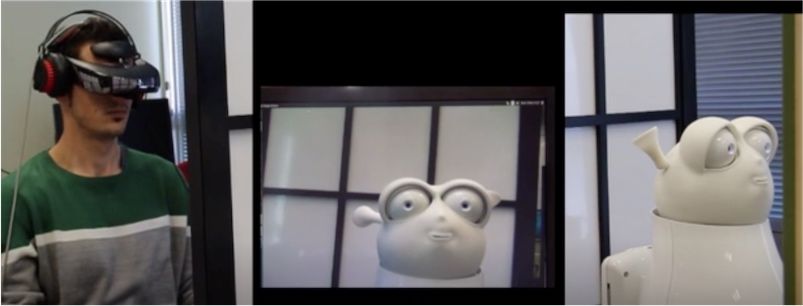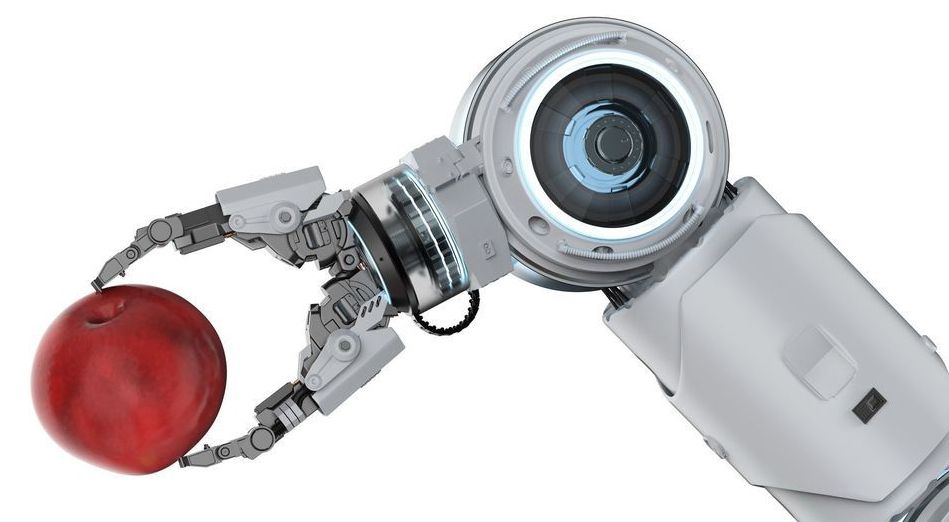Click on photo to start video.
Android, Robot, Replicant… Dutch actor Rutger Hauer has died at the age of 75. sad Note: As in Blade Runner he dies in the year 2019.


This new tech is the product of Neuralink, a company that Elon founded in 2016 with a goal of creating an implantable brain-computer interface (BCI) and yes, it is as crazy as it sounds.
He stated that the initial goal with this is to enable people with quadriplegia (paralysis) to control a smartphone or computer with just their thoughts. But anyone that knows the entrepreneur knows that he intends to go bigger than that.
His vision also consists of giving humans the ability to “merge” with AI and therefore give them superhuman intelligence. This is what may then seem like an objective that is too hype to be an actual plan for new technology development.

Microsoft and Google companies want to be central to the development of the thinking machine.
The decision by Microsoft to invest $1 billion in OpenAI, a company jointly founded by Elon Musk, brings closer the time when machines threaten to replace humans in any tasks that humans do today.
OpenAI, which was founded just four years ago, has pioneered a range of technologies which have pushed the frontiers of massive data processing in defiance of the physical and computer capabilities that governed such developments for generations.
Now, with the investment from Microsoft, the pace of technological change is likely to accelerate rapidly. Today, Artificial Intelligence is at a level of what is known as ‘weak AI’ and relies on humans to create the algorithms which allow for the crunching of massive amounts of data to produce new and often predictive results. Artificial General Intelligence, or Strong AI, will herald a new era when robots will essentially be able to think for themselves.

Here’s my newest #transhumanism article from Metro; a very personal story:
At aged five, she announced she was in love with the robot and wanted to marry it.
My wife and I set up a mock wedding and filmed it. It was all good fun until my wife asked how I’d feel if my daughter wanted to do this as an adult with a robot she loved.
Kids do lots of crazy things with their imaginative minds that have little bearing on the future. Playing make-believe has been a cornerstone of childhood for millions of kids for generations.
But no generation can claim their kids were adept at using YouTube before they reached 12 months of age, as both my kids were.

Trying to see the world through someone else’s eyes is a great way to build empathy and understanding between people. Turns out, this approach — when taken literally — also works with robots. Researchers from the University of Bourgogne, University of Trento, and their colleagues used a head-mounted display to put people “inside” a robot and then studied their “likeability and closeness towards the robot.”
“We have demonstrated that by ‘beaming’ a participant into a robot we can change his or her attitude towards the robot,” says University of Trento psychologist Francesco Pavani.
“By ‘beaming’, we mean that we gave the participants the illusion that they were looking through the robot’s eyes, moving its head as if it were their head, look in the mirror and see themselves as a robot.”

OpenAI, the artificial intelligence firm originally founded by Elon Musk and Y Combinator’s Sam Altman, just landed a $1 billion investment from Microsoft.
Though originally founded to be a non-profit, ethical alternative to the massive companies developing AI tech, OpenAI became a sort of hybrid non-profit and for-profit back in March. The two companies have been collaborating on projects for years, but now with this new investment, Business Insider reports that OpenAI will be developing AI tech specifically for Microsoft’s cloud services.

This innovation drive, including increasing use of automation on farms like Dijkstra’s, has helped propel a country with a land mass smaller than the state of West Virginia to become the world’s second-biggest food exporter after the U.S., with agri-food exports worth more than $100 billion.
And it’s dairy, and fruit and vegetables ― where technologies like milking and harvesting robots are becoming commonplace in the Netherlands ― that account for the biggest share of that export revenue.
“Automation has been part of that success story,” said Erik Nicholson of the United Farm Workers of America. The Netherlands “is seen as a world leader because of the innovation going on there and the output it manages despite its comparatively small size.”

More broadly, biologists are wondering how else deep learning — the AI technique used by both approaches — might be applied to the prediction of protein arrangements, which ultimately dictate a protein’s function. These approaches are cheaper and faster than existing lab techniques such as X-ray crystallography, and the knowledge could help researchers to better understand diseases and design drugs. “There’s a lot of excitement about where things might go now,” says John Moult, a biologist at the University of Maryland in College Park and the founder of the biennial competition, called Critical Assessment of protein Structure Prediction (CASP), where teams are challenged to design computer programs that predict protein structures from sequences.
Deep learning makes its mark on protein-structure prediction.

Whether or not creating an AGI is even possible remains up for debate. Meanwhile, others may cringe at the thought of an AI with the intellect to match and exceed humanity. However, OpenAI has been bullish on the prospect. The company points to the breakthroughs researchers have made in last decade in getting AI algorithms to recognize images, translate languages, and control robots. One of OpenAI’s own AI projects can write fiction like a human can (sort of).
However, creating new AI-based technologies costs a lot of money. Not only does it require programming, but also renting access to thousands of servers. So OpenAI has been seeking funding. “The most obvious way to cover costs is to build a product, but that would mean changing our focus. Instead, we intend to license some of our pre-AGI technologies, with Microsoft becoming our preferred partner for commercializing them,” Altman wrote in a separate blog post.
Tesla is working on several significant manufacturing improvements for the Model Y production program and it includes building a giant new casting machine to produce a big part of the Model Y frame in one single piece.
We have been reporting on how Tesla plans to simplify the design of its future vehicle platforms and achieve greater automation in the manufacturing process.
Yesterday, we reported on how Tesla is working on a revolutionary new wiring architecture to help robots build upcoming cars like the Model Y.